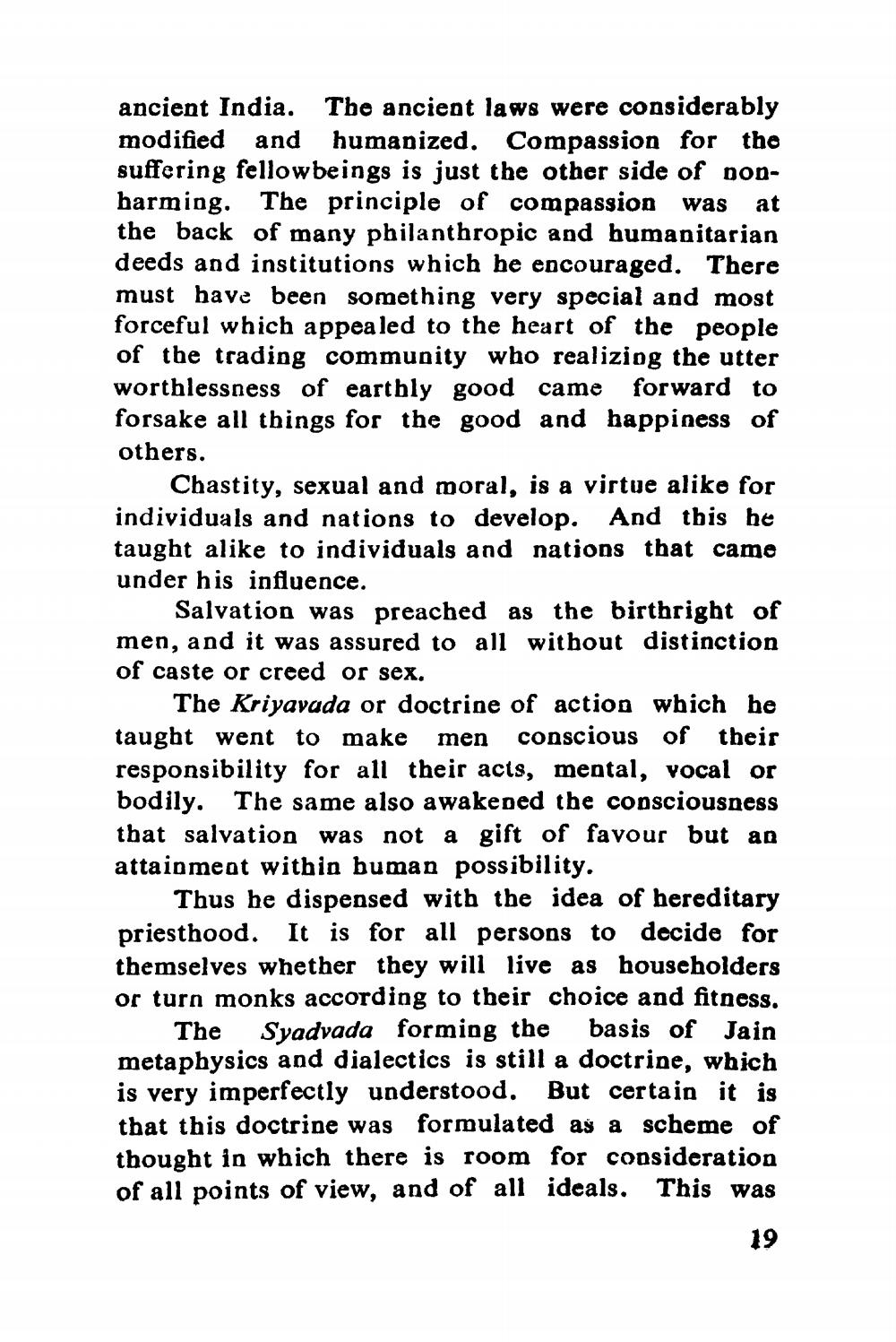________________
ancient India. The ancient laws were considerably modified and humanized. Compassion for the suffering fellow beings is just the other side of nonharming. The principle of compassion was at the back of many philanthropic and humanitarian deeds and institutions which he encouraged. There must have been something very special and most forceful which appealed to the heart of the people of the trading community who realiziog the utter worthlessness of eartbly good came forward to forsake all things for the good and happiness of others.
Chastity, sexual and moral, is a virtue alike for individuals and nations to develop. And this he taught alike to individuals and nations that came under his influence.
Salvation was preached as the birthright of men, and it was assured to all without distinction of caste or creed or sex.
The Kriyavada or doctrine of action which he taught went to make men conscious of their responsibility for all their acts, mental, vocal or bodily. The same also awakened the consciousness that salvation was not a gift of favour but an attainment within buman possibility.
Thus he dispensed with the idea of hereditary priesthood. It is for all persons to decide for themselves whether they will live as householders or turn monks according to their choice and fitness.
The Syadvada forming the basis of Jain metaphysics and dialectics is still a doctrine, which is very imperfectly understood. But certain it is that this doctrine was formulated as a scheme of thought in which there is room for consideration of all points of view, and of all ideals. This was
19




